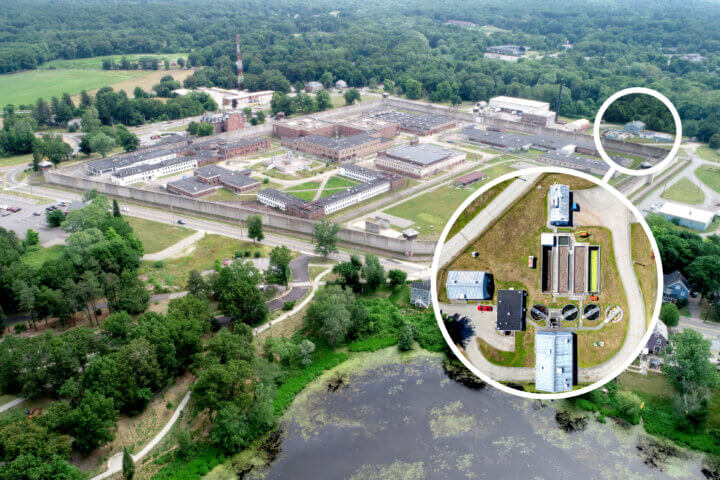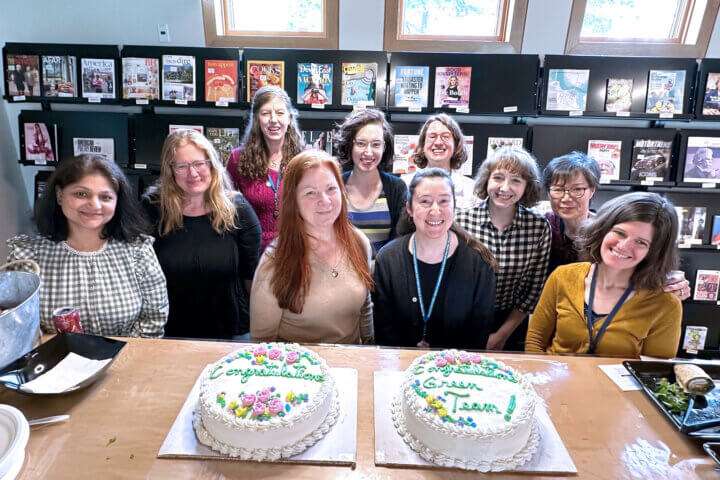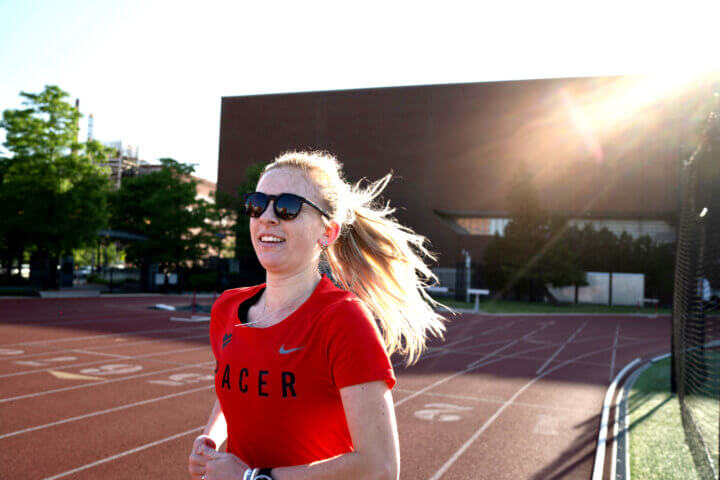At 6’ 8.5,” Paul Sellew is imposing even while sitting down during a Zoom interview. As a young man Sellew’s height and athletic ability provided the opportunity to play basketball professionally on three national championship teams in Argentina, Italy and Belgium.
His position as a power forward and the rigor of play helped instill a drive to be the best in his sport. He devoted time to refine his position and integrate into the team’s culture. This environment and level of competition enabled him to develop the grit needed to be a successful entrepreneur.
Sellew bikes over 100 miles a week often riding in Concord, citing the vistas and farmlands surrounding the town, which remind him of the Connecticut landscape from his youth.
“If you are going to start a company or play a professional sport, ultimately is it grit that you need to have to make it. It is hard out there because of the intense competition,” he said.
He grew up in a farming family in Connecticut. The Cornell graduate with a degree in agriculture/horticulture merged the family best practices with lessons in academia to contribute to their farming business and then eventually his own start up companies. Five generations of farmers still run the business Prides Corner Farms, a nursery/ornamental horticulture business which boasts over 600 acres in four locations.
After college, basketball and working in the family business, Sellew pivoted and focused on food farms. For two decades he built a tomato vineyard business in Maine called Backyard Farms. He pivoted once again and began a new business, controlled environment agriculture, specifically growing lettuce and starting Little Leaf Farms.
When asked why the focus on one item of produce, Sellew responded simply, “volume of consumption.”
“Americans consume approximately 22 to 24 pounds of tomatoes per year and 30 pounds of lettuce per person over a year. Lettuce is among the top five consumption produce items in the country. The potato remains by far the top at 117 pounds,” he said.
Sellew uses technology to build a more resilient food system in New England. From seeding to harvesting, no human hands touch the production at Little Leaf Farms’ giant Devens greenhouse.
Sellew said his farm represents the farm of the future: locally grown produce, sold locally and consumed shortly after purchasing. Freshly harvested produce has more nutrients. The product usually tastes better and fresher. It was not picked early, boxed and shipped cross-country.
Little Leaf Farms gets fresh picked lettuce on the table within 24 hours after harvest. Given our relatively short growing season, this business has made the region stronger by growing and consuming food locally. Per the Neilson rankings, Little Leaf has the third largest sales with a growth rate of 58 percent, the highest amongst its competitors.
“Fundamentally we are in a food system transformation right now, almost a back to the future farming,” he said.
Right now, 90 percent of our food comes from outside New England and the goal is to have 50 percent of food grown locally by 2050. In order to do this, farming needs to embrace new approaches in technology. Sellew’s farm is able to produce 30 times more than field farming due to technology, controlled environment agriculture and year-round production.
Little Leaf uses AI machine learning, which monitors the climate using hundreds of sensors in the greenhouses, analyzes the data and automatically makes changes, creating a more stable predictable growing environment for leafy greens. So, harvesting during a snowstorm is possible!
The United Nations states the need for peri-urban agriculture and defines it as the agriculture practices within and around cities that compete for resources (agriculture, land, water, energy, labor) and underscores a symbiotic relationship between urban and rural areas. At a rate of 40 million packages of lettuce sold per year, it seems that this startup is on its way to impacting peri-urban agriculture.
I welcome any ideas as to whom you would enjoy reading about. Reach out anytime at annelehmann@comcast.net





